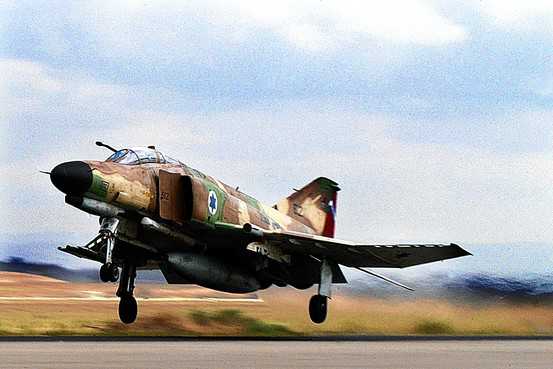by Stephen Lendman
 America’s business isn’t just war and grand theft. It’s also regime change by whatever means.
America’s business isn’t just war and grand theft. It’s also regime change by whatever means.
A previous article mentioned General Wesley Clark, from his book, “Winning Modern Wars,” saying that Pentagon sources told him two months after 9/11 that war plans were being prepared against Iraq, Syria, Lebanon, Iran, Somalia, Sudan and Libya. Months earlier, they were finalized against Afghanistan.
Clark added:
“And what about the real sources of terrorists – US allies in the region like Egypt, Pakistan, and Saudi Arabia? Wasn’t it repressive policies of the first, and the corruption and poverty of the second, that were generating many of the angry young men who became terrorists? And what of the radical ideology and direct funding spewing from Saudi Arabia?”
“It seemed that we were being taken into a strategy more likely to make us the enemy – encouraging what could look like a ‘clash of civilizations’ – not a good strategy for winning the war on terror.”
On September 5, Nil Nikandrov’s Global Research.ca article asked if “After Libya: Is Venezuela Next?” saying:
NATO insurgents attack on Venezuela’s Tripoli embassy and compound narrowly missed claiming casualties as “ambassador Afif Tajeldine and the embassy staff moved to a safer location at the last moment and left Libya shortly thereafter.”
Nikandrov added that Venezuela’s embassy was the only one looted, suggesting perhaps a message threatening Chavez as America’s next target.
He certainly was in April 2002 for two days by a Washington instigated coup, aborted by mass street protests and support from many in Venezuela’s military, especially from its middle-ranking officer corp.
Later in December 2002 and early 2003, he was again by a general strike and oil management lockout, causing severe economic disruption, and by an August 2004 national recall referendum he won handily with 59% of the vote.
Chavez knows Washington targets him for removal, yet he remains Venezuela’s democratically elected president since first taking office on February 2, 1999, and still popular.
Nonetheless, last June, the Republican controlled House Foreign Relations Committee wanted the Obama administration to aggressively “contain (his) dangerous influence (and) his relations with Iran,” according to Rep. Connie Mack (R. FL), chairman of the Subcommittee on Foreign Affairs for the Western Hemisphere.
He and Rep. Ileana Ros-Lehtinen (R. FL), another right-wing extremist, got the White House to impose sanctions on Petroleos de Venezuela (PDVSA), its state oil company even though America relies on imported oil it supplies.
They and others also want Venezuela designated a supporter of state terrorism with greater consequences if they succeed, unfriendly to US business interests very much opposed.
As a result, whether other actions follow bears close watching. Moreover, Venezuela’s late 2012 presidential election is important, especially with Chavez recovering from cancer, so perhaps is more vulnerable than earlier.
Ahead of the precise date to be announced, Washington is funding his opposition as done previously, meddling in the internal affairs of a sovereign country, what’s illegal in US elections.
Since 2002, in fact, America’s State Department-funded National Endowment for Democracy (NED) directed over $100 million to anti-Chavez groups, candidates, and media campaigns.
Despite America’s debt and budget problems, it continues perhaps in amounts greater than known, and may increase substantially next year as part of a greater regime change campaign.
Are more aggressive actions planned? Only the fullness of time will tell, but given the Obama’s penchant for regime change, events ahead bear close watching.
In Syria also since externally generated uprisings began last March, then intensified, suggesting regime change there as in Libya. Both countries were targeted with violence, so far, however, without NATO intervening against the Assad government or able to get a Security Council resolution passed to facilitate it.
However, according to National Security Council director of strategic communications Ben Rhodes, the Libya model is a template for future US/NATO interventions, but “(h)ow much we translate to Syria remains to be seen. The Syrian opposition doesn’t want foreign military forces but do want more countries to cut of trade with the regime and break with it politically.”
By opposition perhaps he means Washington, NATO allies, and supportive regional regimes, not Syrians or its business leaders, harmed most by sanctions and other tactics.
On August 31, Corbett Report editor James Corbett told Russia Today that manipulated video footage is being used to falsify events on the ground, saying:
“There’s even been the implication that some of the images being shown have been digitally manipulated,” online reports discussing it. One instance cited video footage from Bahrain. Claimed to be from Hama, various stations airing it used different digitally “dropped in backgrounds.”
“So there are some very strange things going on, and unfortunately we live in an age when media manipulation is so easy.”
It’s thus harder to distinguish between reality and fiction. It was true in Tripoli when alleged rebel-supportive euphoric celebrations were, in fact, produced at a Doha, Qatar Green Square Hollywood-style sound stage mockup. In other words, they were staged and untrue. Apparently, the same deception is now repeated in Syria.
A September 3 Corbett Report video with Michel Chossudovsky focused on destabilizing Syria, suggesting a greater global war could result, involving Russia and China.
“Whatever the nature of the Syrian government,” he said, falsely intervening based on “the doctrine of the responsibility to protect is a derogation of the sovereign rights of a country,” according to fundamental international law prohibiting it.
In fact, Western media suppress reports of well armed insurgents, brought in from the outside, stoking violence since last March. At the same time, Assad’s forces were blamed for responding.
In all anti-government demonstrations, disruptive “Islamists, snipers, and armed gangs are involved in acts of arson directed against government buildings,” including a “court house and the agricultural bank in Hama.”
At the same time, nonviolent civilians, legitimately protesting grievances, are trapped between waring sides, resulting in deaths and other casualties.
At issue, however, is “an armed insurrection, spreading from one city to another. We now have very firm evidence that both Turkey and Israel are” supporting militia groups (financially and with weapons), some of them, in fact, used as death squads.
At the same time, “they’re using this a pretext to demonize the Syrian regime, and demand the resignation of Bashar al-Assad,” perhaps heading toward NATO intervention and greater war.
On September 2, Chossudovsky’s Global Research.ca article headlined, “The Al Qaeda Insurgency in Syria: Recruiting Jihadists to Wage NATO’s ‘Humanitarian Wars,’ Part III,” saying:
Despite its authoritarian nature, Assad’s government is “the only (remaining) independent secular state in the Arab world. Its populist, anti-Imperialist and secular base is inherited from the dominant Baath party,” supportive of Occupied Palestinians as is Iran and Lebanon’s Hezbollah.
At issue is the US/NATO plan to “displace and destroy the Syrian secular State, displace or co-opt the national economic elites and eventually replace the” current government “with an Arab sheikdom, a pro-US Islamic republic” or US-style democracy meaning one in name only.
As always, America’s pack journalism produces one-sided falsified report, supporting US imperial wars and disruptive insurgencies preceding them.
As a result, accounts and commentaries suppress information about efforts to recruit thousands of jihadist “freedom fighters” like earlier in Afghanistan against Soviet Russia, and currently a de facto NATO invasion force in Libya, massacring anyone thought to be pro-Gaddafi.
Already battling an outside instigated insurrection, is Syria’s turn next, a topic MK Bhadrakumar addressed in his August 30 article, saying:
If earlier events in Iraq and current ones in Libya are “any indication, the future of (Syria’s) sovereignty might be hanging by a thread.” In fact, as he and others believe, regime change in one form or other is core regional US policy for strategic gains against rivals Russia and China.
Images from Syria now are all too familiar, including falsified reports hyping them, as well as claims about people yearning for Western liberators to free them.
As a result, expect Libya to replicate post-Iraq and Afghanistan occupations, highlighted by protracted conflict and violence, including insurgent forces warring amonst themselves, innocent civilians harmed most as a result.
Moreover, British Deputy Prime Minister Nick Clegg ominously said:
“I want to make it absolutely clear: the UK will not turn its back on the millions of Arab states looking to open up their societies, looking for a better life?”
After destroying and preparing to loot Libya, did he mean Syria is next? Surely not Saudi Arabia, Bahrain, other Gulf States, Yemen, or other loyal regional allies, according to Bhadrakumar and other analysts.
Although accomplishing regime change in Syria may be harder than in Libya, never underestimate the ability of Western plotters to find a way. Perhaps what’s now ongoing mere prelude to greater planned disruption politically, financially or by direct military intervention.
“Sustained efforts are afoot to bring about a unified Syrian opposition.” A Turkey-held meeting, “third in a row, finally elected a ‘council’ ostensibly representing the voice of the Syrian people.”
In fact, it represents predominantly Western interests as well as Turkey’s and Israel’s. “The fig-leaf of Arab League support is also available,” pro-West autocratic regimes now “in the forefront” for regime change in Syria.
Key ahead is getting another Security Council mandate for intervention. “The heart of the matter is that regime change in Syria is imperative for the advancement of” America’s Middle East strategy.
It includes delinking Syria from Iran, then Hezbollah in Lebanon and Hamas in Gaza, isolating the Islamic Republic, while at the same time, strengthening Israel’s position, and weakening that of Russia and China.
Portraying both countries as being on the “wrong side of history,” Bhadrakumar calls the strategy a “clever ideological twist to the hugely successful Cold-War era blueprint that pitted communism against Islam.”
Western body language and supportive media rhetoric suggest “no conceivable way the US would let go the opportunity (for regime change) in Syria.”
Whether it’s coming, only time will tell. In the meantime, regional violence continues subverting Arab spring aspirations everywhere from blooming.
ABOUT THE AUTHOR: Stephen Lendman lives in Chicago and can be reached at lendmanstephen@sbcglobal.net. Also visit his blog and listen to cutting-edge discussions with distinguished guests on the Progressive Radio News Hour on the Progressive Radio Network Thursdays at 10AM US Central time and Saturdays and Sundays at noon. All programs are archived for easy listening. He is also the author of “How Wall Street Fleeces America“





